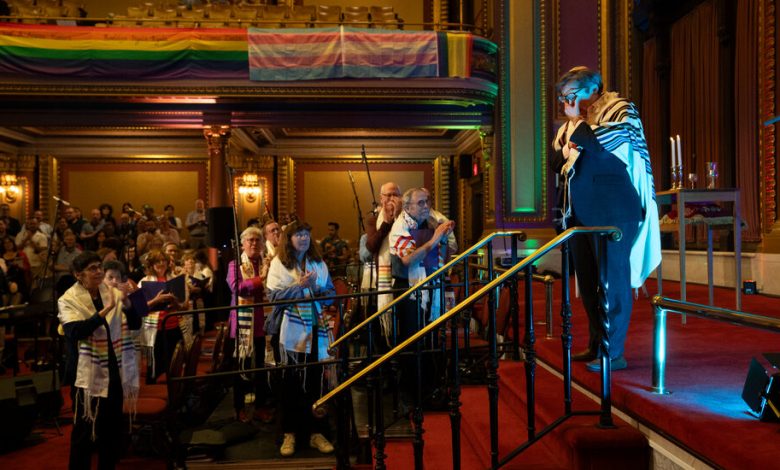A Pioneering New York Rabbi Says Goodbye to Her L.G.B.T.Q. Congregation

Three decades later, the intense weekslong controversy has largely faded from memory. A New York rabbi had asked permission for her congregation to march in the city’s annual Salute to Israel Parade up Fifth Avenue. But the rabbi was Sharon Kleinbaum, the new leader of a predominantly gay synagogue. Officials from various Orthodox Jewish organizations were threatening to boycott the event, and the rabbi was getting hate mail.
The rabbi brokered a deal with parade organizers, but it fell apart. So she came up with a Plan B.
The congregation was not allowed to participate in the 1993 parade, but it did hold a separate tribute to Israel, which drew grateful members of the city’s political class who had sought to somehow accommodate all sides in the controversy. It was not until 2012 that the congregation was allowed to march.
“I never let it upset me,” Rabbi Kleinbaum said. “I didn’t need them to tell me that I, or our community, are worthwhile. My job, I felt, was to listen and help people see that their words and actions were coming from a place of fear and anxiety and that hate wasn’t the only response to have.”
In the years since, Rabbi Kleinbaum’s synagogue, Congregation Beit Simchat Torah in Midtown Manhattan, has grown to become the largest L.G.B.T.Q. congregation in the country. And she has become a national leader in the civil rights movement for L.G.B.T.Q. Americans and their fight for acceptance within Judaism.
Rabbi Kleinbaum, 64, is retiring this summer after a career that put her at the forefront of social change in New York and beyond. Her progressive vision for Judaism was embraced by her congregation, and she became a confidante to liberal political leaders.